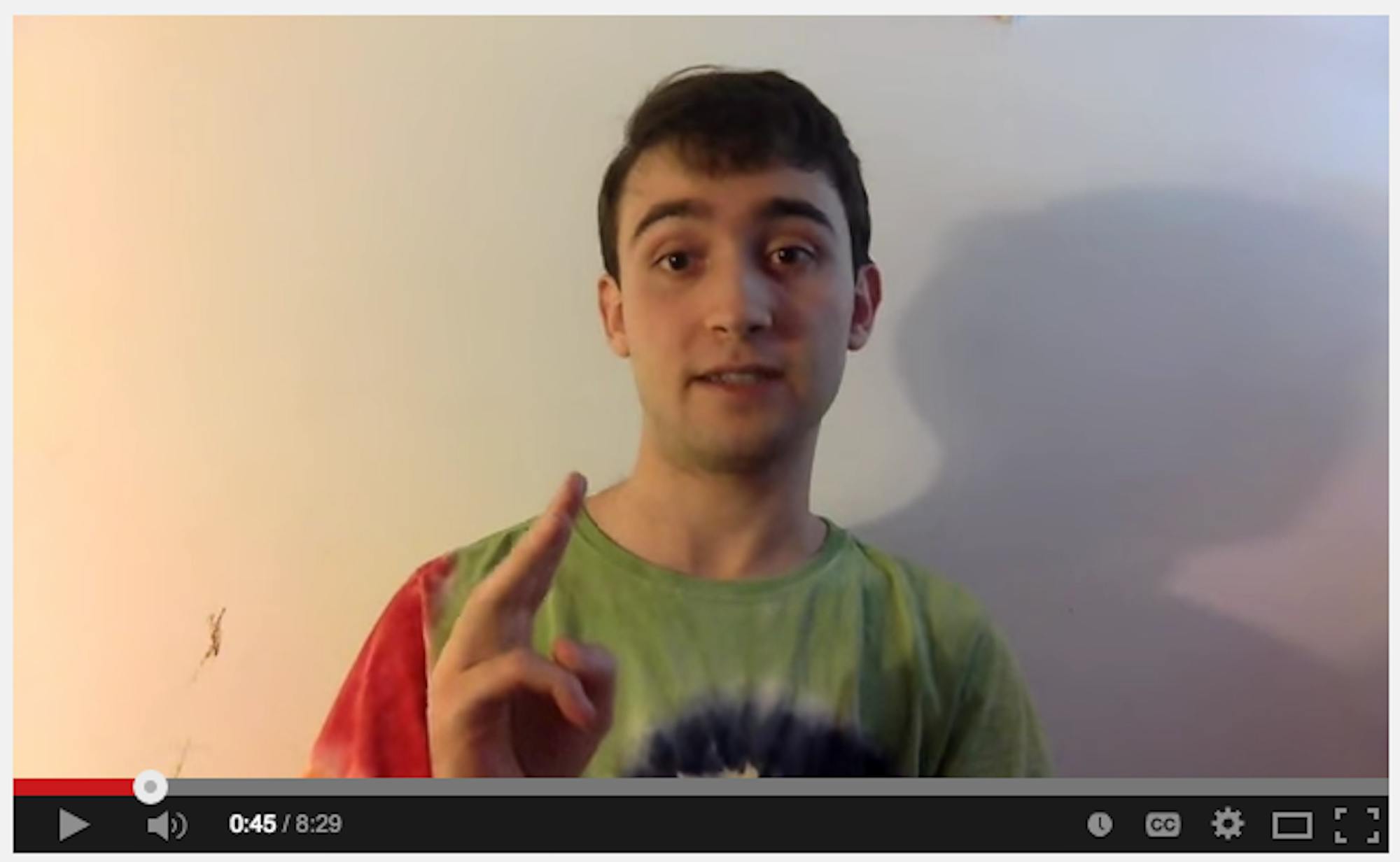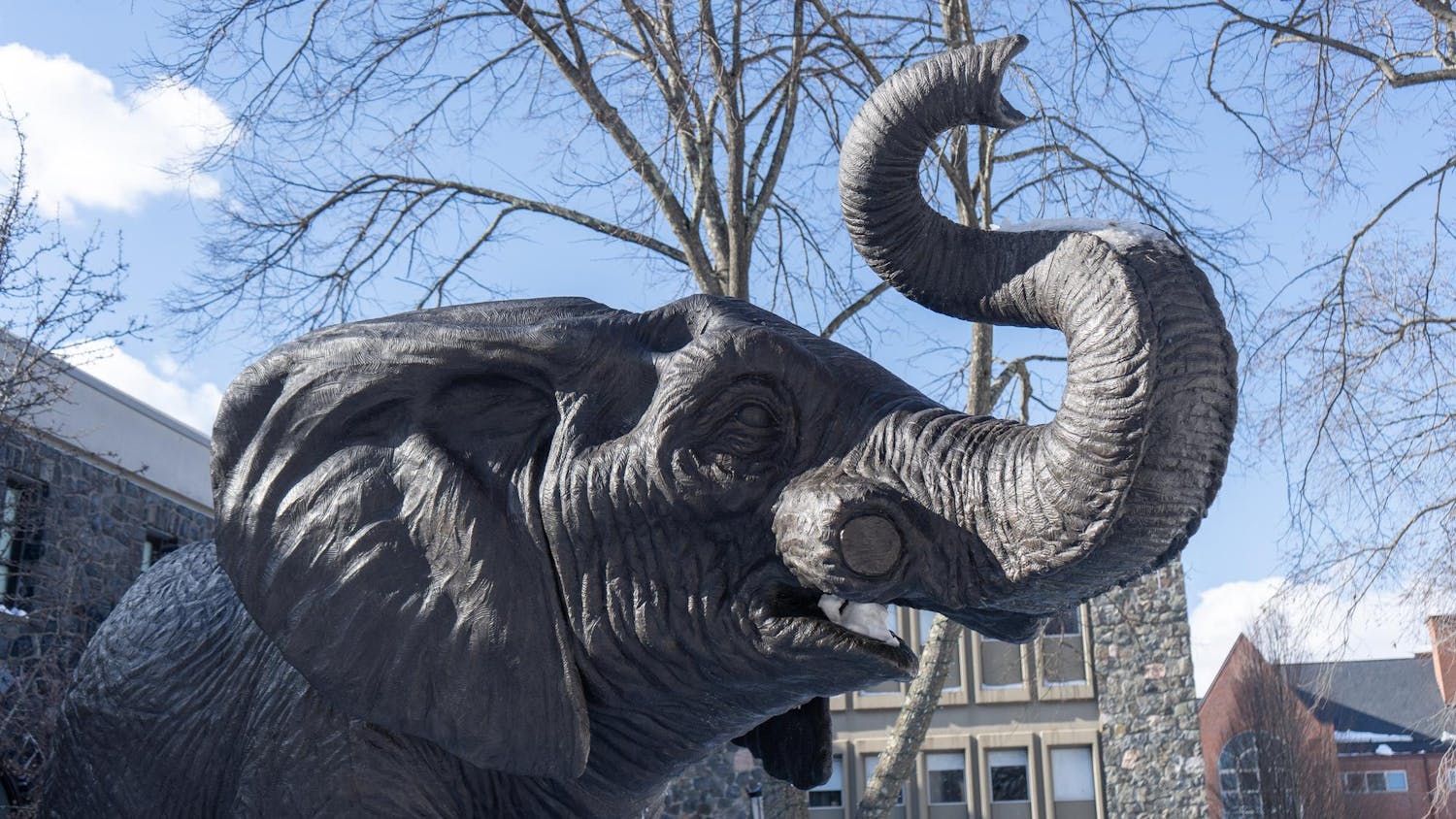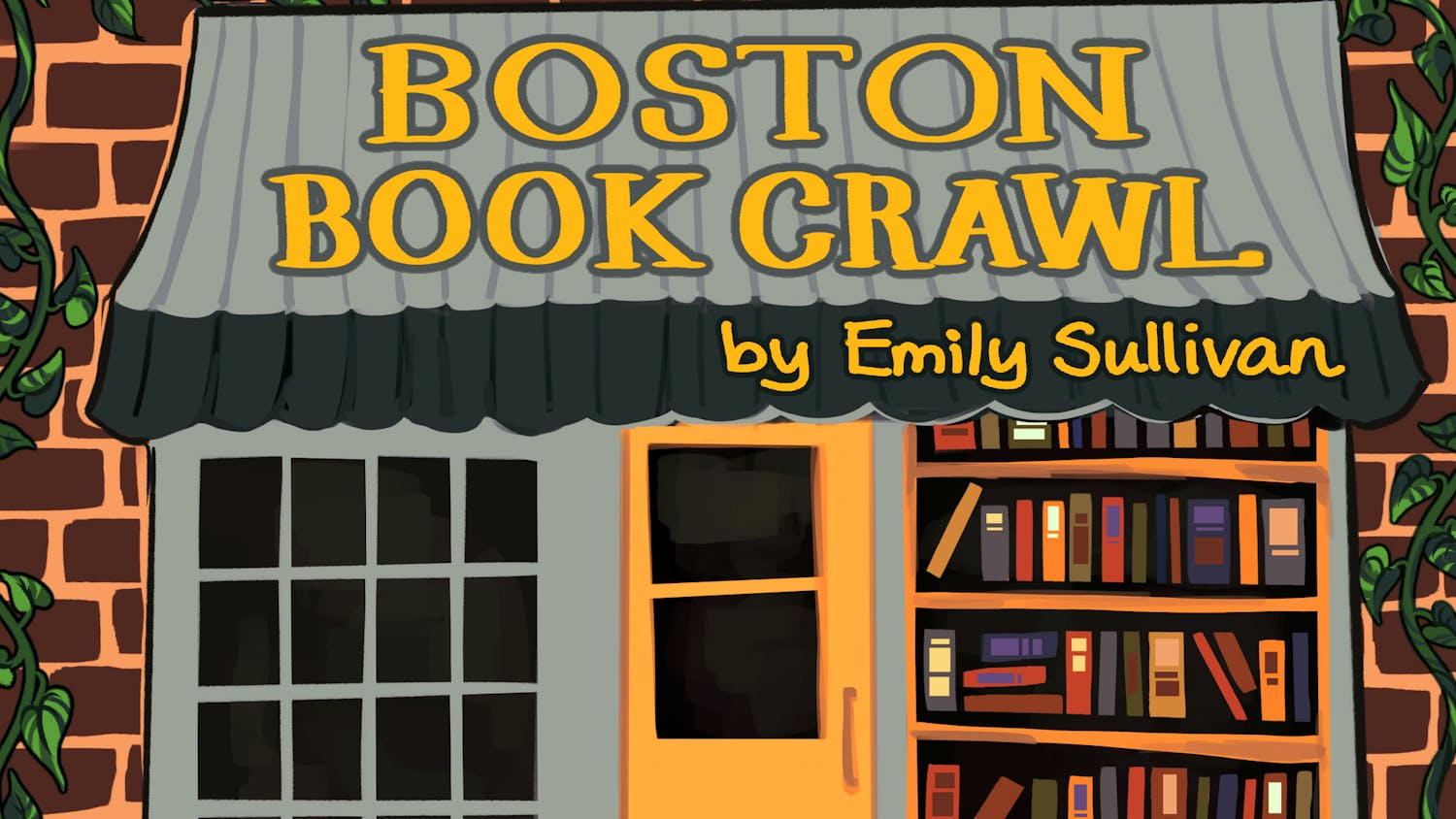This is the first article in a two-part series on students with autism spectrum disorders (ASD) at Tufts.
Six students sit around a table in the Mayer Campus Center on a Friday evening, fiercely debating. The topics at hand include a2008 Pentagon reportclaiming that Vladimir Putin has Asperger’s syndrome and the resistance to vaccination as an alleged cause of autism, in light of last month’s measles outbreak in Disneyland.
The conversation moves on to a recurringphenomenon of parents with a severely autistic child attempting to kill themselves and/or their child, claiming that the burden of raising an autistic child became too heavy. One student points out that while it may be hard to be the parent, it's important to think about how hard it must be to be the child.
“It doesn’t matter how autistic you are -- you’re still a human being,” another student said, emotionally.
A mixed group of those diagnosed with autism spectrum disorder (ASD) and those considered neurotypical, these students make up the Coalition for Autism Support at Tufts (CAST).
Sophomore Justin Robbins founded CAST last October for two reasons: to fight stigmas against people with autism, and to create a supportive space for students on the autism spectrum at Tufts. Robbins was diagnosed with ASD during his junior year in high school.
“The primary reason CAST was founded [was] so we could find each other, so that we can answer questions we all knew we had but are difficult to explain,” he said. “For example, how do you spot when someone is making a white lie? How do you start a conversation? I really struggled [with all that stuff] in high school.”
However, CAST also aims to break down the stigmas about autism that are evident in the examples discussed at the meeting -- one of which, according to sophomore Aaron Herman, is that autism is a debilitating medical condition, seen by some as worse than death.
“Yes, it is a disability, but it’s also a part of our identities, just like LGBT is or [anything] else,” Robbins said. “We’re different -- no, that doesn’t mean we’re broken, that doesn’t mean we’re diseased.”
Having an autism spectrum disorder can mean difficulties with social skills, such as “responding inappropriately in conversations, misreading nonverbal interactions or having difficulty building friendships,” according to a report from the American Psychiatric Association.
For Robbins, this has meant avoiding eye contact and missing social cues, as well as trouble distinguishing friends from acquaintances. For senior Rachel Bennett, who was diagnosed with Asperger’s syndrome during her sophomore year at Tufts and has since joined CAST, it means putting your foot in your mouth and not even realizing you did it.
Asperger’s syndrome falls on the low end of the 'autism spectrum'. Until 2013, Asperger’s was diagnosed as a separate disorder. But with the release of the newly revised fifth edition of the Diagnostic and Statistical Manual of Mental Disorders (DSM-5), autism has become a single umbrella disorder.
According to a page onTV Tropes, a popular fiction-writing wiki, Asperger’s (now high-functioning autism) can also be characterized by logical and literal thinking, trouble understanding what others may be thinking and feeling, irregular speech patterns or body language, avoidance of eye contact, sensitivity to sensory overload and narrow, sometimes obsessive interests.
https://www.youtube.com/embed/tN5BWNVuKAg
Herman was diagnosed with Asperger’s at the age of six. His parents didn’t tell him until he was in fourth grade.
“They thought I would be scared by it,” Herman said.
Herman deals with anxiety about autism leading him to act in a socially "inappropriate" way.
“One of the things that’s scariest about Asperger’s or autism is the possibility that you’ll do something that’s not socially acceptable, that’s considered rude, and you won’t even realize that you did it," he said. "The way I see it, being bad at social skills is not like being bad at math, because people don’t decide who they’re friends with based on how well they do math.”
Right before Herman began third grade, he found out from a letter his teacher sent home that one of his classmates was born with one leg. During orientation, Herman wanted to show off that knowledge to his parents. He told his mother that he knew that not everyone in his class had arrived yet. When she asked how he knew that, he said: “Because I haven’t seen anyone who has one leg.” Herman immediately realized that what he had said was insensitive.
“Even without her telling me, I immediately connected the dots, and I actually started crying because I was so upset with myself,” Herman said. “The level of difference between your intentions and how you’re acting can be that big, that it makes you want to take it back that badly.”
Herman noted that his social skills have improved steadily, however, mostly in middle and high school. In addition to actively participating in CAST, Herman has also started a series of YouTube videos where he talks about a number of issues surrounding Asperger’s, including terminology and recent controversy.
“The mistakes I make are smaller now, and I’m a lot more mature so I tend to brush them off a lot more easily,” he said. “I take the attitude that if I’ve done something wrong, people should tell me so that I can fix it for later. I’m at the point where I can totally take it.”
Autism spectrum disorder is a continuum, with behaviors that range from mild to severe and vary individually, according to the American Psychiatric Association's report. As Robbins puts it: “If you’ve met one person with autism, you’ve met one person with autism.” In addition, people can move along the spectrum throughout their lives.
“That’s another thing people forget -- we all grow up,” he said. “We get better at social stuff, we get better at life skills. We appear to not be as autistic as we were, when [really] we learned how to cope.”
Herman, Robbins and Bennett all identify as high-functioning, or low on the autism spectrum. People who are low-functioning, or severely affected, may be completely nonverbal.
“I identify as autistic, for a couple reasons: One, it’s technically correct because Asperger’s syndrome no longer officially exists, and two, I say autistic out of solidarity,” Robbins said. “The true difference between high-functioning and low-functioning is really subjective.”
Bennett noted the difference between stereotypes attached to Asperger’s and to autism.
“I’ll admit, I do say Asperger’s more than I say autism. I wish I didn’t. It’s because of the stigma,” Bennett said. “Asperger’s is 'smart but quirky', autism is 'you’re nonverbal.'”
https://www.youtube.com/watch?v=g7sI0G7_JE0
Robbins believes that this is one reason for Asperger's elimination from the DSM-5 -- to mediate the effects of these stereotypes and generally improve the accuracy of diagnosis.
In the first part of a two-part series on being autistic in the Tufts environment, members of the Coalition for Autism Support at Tufts talk about their experiences and their opinions on the identities of autistic people.
“The problem is that there was a very large bias towards diagnosing Asperger’s as opposed to autism for wealthier kids, for white kids and for boys,” Robbins said. “Autism is probably under-diagnosed in minority communities [and] definitely under-diagnosed with women.”
There has been opposition to the elimination of Asperger’s from the DSM-5, from parents concerned their children will lose health or education benefits and from individuals diagnosed with Asperger’s who do not want to lose that identity.
When the DSM-5 came out, Herman read negative reactions online from people diagnosed with Asperger’s who did not want to be associated with autism due to its connotations of severity.
“I think that’s a really unhealthy attitude to take,” Herman said. “What we should be doing is changing the way people think about autism, not changing what we call ourselves to accommodate what people think that means.”
For some, having autism means having an intense interest in one or more specific areas of knowledge. Robbins’ first interest area as a child was astronomy, and since then has shifted toward biology and history, his two majors.
“I don’t know if I would have gotten into Tufts without that passion for science, without that passion for history, without that passion for all this other weird, nerdy stuff,” he said. “The [admissions] essay -- celebrate your nerdy side -- that was the one essay I genuinely enjoyed writing.”
Herman, who is majoring in music, said that his autism is instrumental in his ability to write music. While he often needs time away from other people, he says that he puts that time to good use.
“One benefit that it brings me is that it lets me work on something for a long period of time and perfect it … I take on large-scale projects in composition,” Herman said. “The level of understanding of music I have would not be the same without Asperger’s.”
Bennett is majoring in child development and psychology and plans to pursue a career in early childhood education. From her experience in JumpStart and working in a summer program in Chinatown, she has found it much easier to communicate with young children than people her own age or adults.
“I love little kids, I’m good at it. I’ve always understood them better than grownups,” she said. “I’ve always had trouble with the parents. I always want to tell them what they’re doing wrong and I will sometimes, and that just gets me in trouble.”
'We’re not broken': at Tufts, on the autism spectrum

Sophomore Aaron Herman holds a YouTube series in which he discusses various issues related to Asperger's syndrome.





